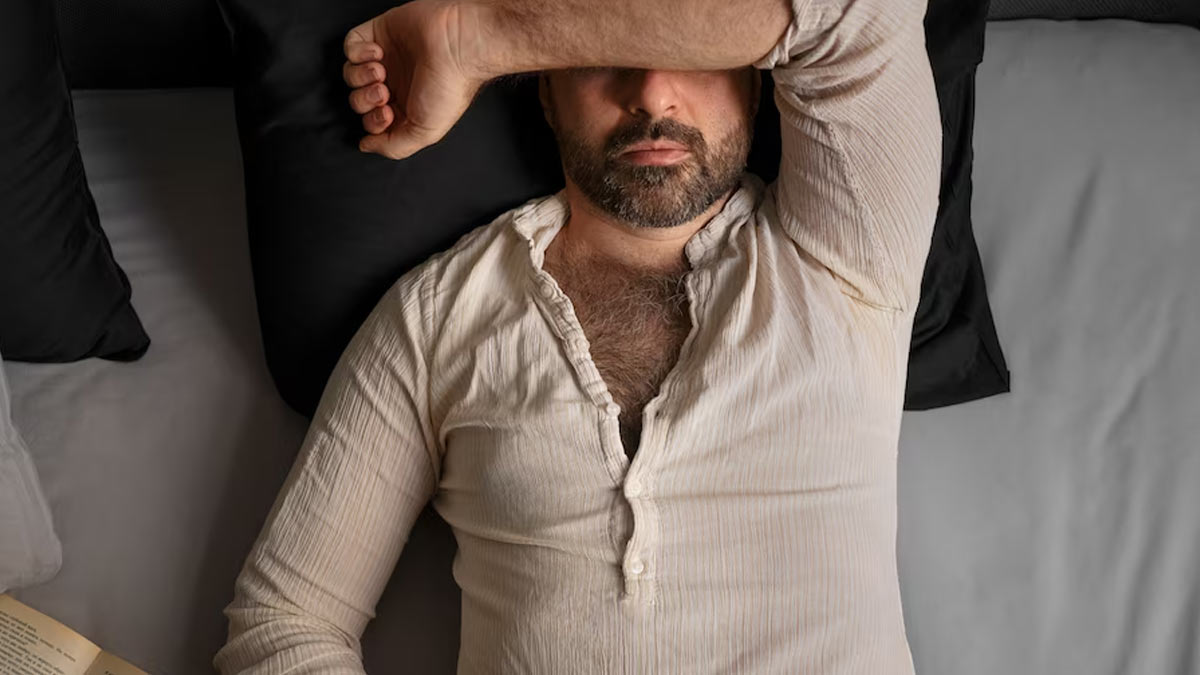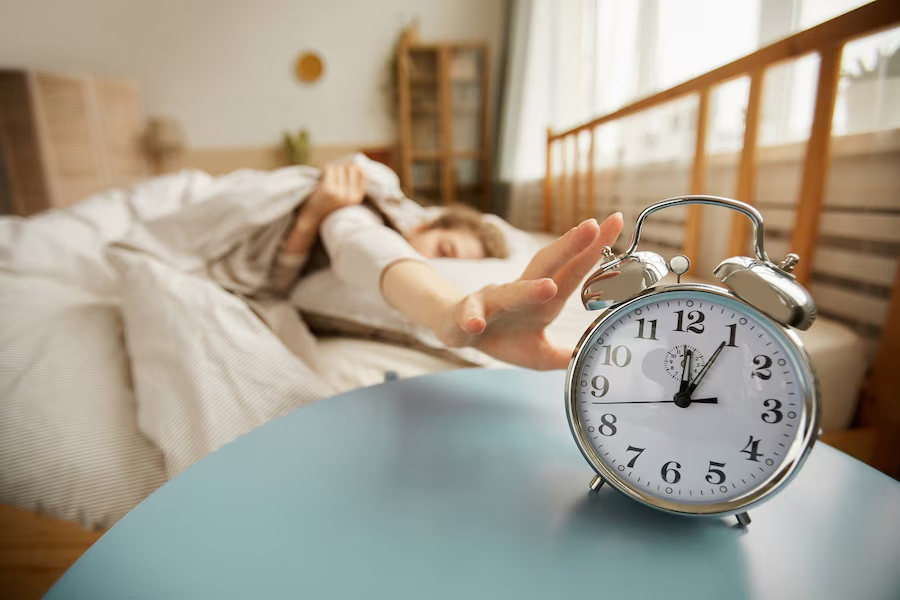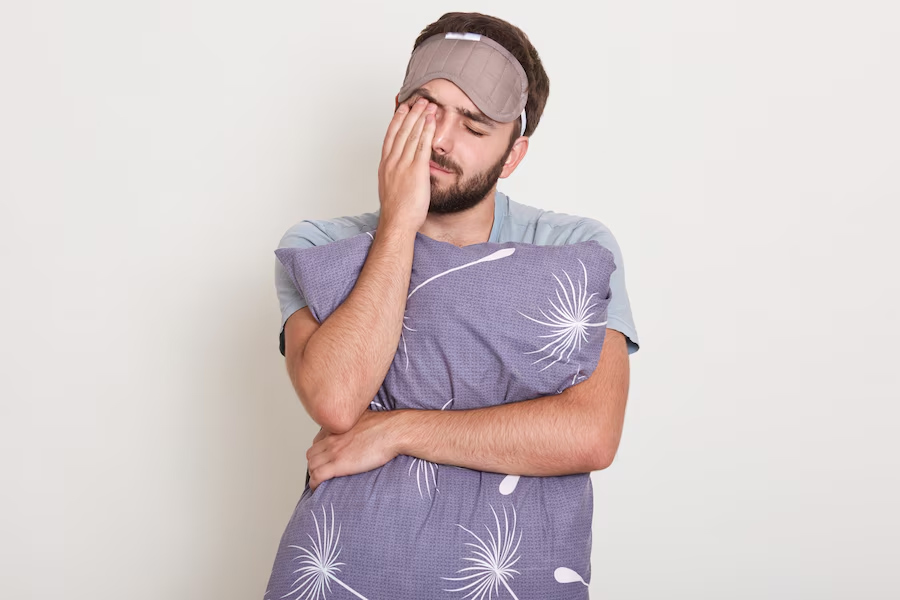
Waking up in the morning can sometimes feel like a task. This is particularly prevalent in people who either have had a sleepless night or who worked tirelessly the previous day. But if the situation arises time and again without any explanation, it could mean more than just regular fatigue. The term you’re looking for is ‘dysania,’ a condition characterised by the inability to get out of bed for 1-2 hours after being awake, according to WebMD.
Table of Content:-
In an interaction with the OnlyMyHealth team, Dr Mazher Ali, Consultant Psychiatrist, CARE Hospitals, Banjara Hills, sheds light on the condition, but highlights that it is not a recognised medical condition.
Also Read: How Maintaining A Sleep Schedule Boosts Your Heart Health: Ways To Create One
What Is Dysania?

“The difficulty in getting out of bed in the morning or the strong desire to return to it may actually be indicative of a chronic difficulty known as dysania,” says Dr Ali, adding, “While medical experts may not recognise it as an official condition, dysania is significant in its inherent issues, such as anxiety, depression, chronic fatigue syndrome, or insomnia.
According to the Sleep Foundation, dysania, also known as clinophilia, is "closely associated with clinomania, which is an obsession with or profound desire for staying in bed."
"Although a person with clinophilia spends more time lying in bed, the amount of time they spend sleeping does not necessarily increase," the charity adds.
Dr Ali says, “It often negatively affects day-to-day living and should be addressed through improved sleep hygiene, therapy, or lifestyle changes to mitigate symptoms.”
How To Identify The Condition?

One of the most common signs of dysania is the intense desire to stay in bed or the inability to wake up. Other common elements include:
- Fatigue
- Lethargy
- Excessive sleepiness
According to Dr Ali, the chances of misdiagnosis or underdiagnosis are amplified by issues like sleep disorders, depression, or anxiety, and due to the lack of official recognition of dysania as a distinct medical issue, experts and practitioners are likely to ignore the condition and focus on more medically acknowledged disorders.
Therefore, a comprehensive understanding of an individual's lifestyle, daily habits, sleep patterns, and mental health is necessary for an appropriate diagnosis.
Also Read: Excessive Daytime Sleepiness (EDS): Symptoms, Causes, Diagnosis And Treatment
Factors That Can Make You Spend Too Much Time In Bed
Many factors can result in spending excessive time in bed. This includes poor lifestyle habits, such as a lack of exercise or physical activity, as well as too much screen time.
In addition, an individual may find it difficult to get out of bed if they are affected by sleep disorders like insomnia, hypersomnia, or even auto-immune disorders and other physical ailments, says Dr Ali.
It is important to note that poor mental health could also lead to the desire to rest in bed for longer periods of time. In fact, a 2014 study published in the journal PLOS ONE suggested that depression may be linked to dysania, as people with depression may struggle with low energy and a lack of motivation, making it difficult to get out of bed in the morning. Additionally, dysania itself might contribute to feelings of depression. If someone stays in bed for excessive periods throughout the day, they may miss out on sunlight exposure and social interaction, both of which can worsen depressive symptoms.
Dr Ali recommends addressing these issues to improve sleep health and, consequently, health in general.
Health Risks To Consider

Spending too much time in bed can result in both physical and mental challenges.
“For instance, there is a sharp decline in mental health when individuals spend excessive hours in bed, leading to potential depression and isolation. Issues like dysania can also cause physical harm in the form of stiff joints, vein thrombosis, or, in serious cases, cardiovascular issues like high blood pressure,” Dr Ali says.
He adds, “Understandably, oversleeping can ruin the quality of sleep and cause sleep disorders like hypersomnia and insomnia. Improper or less sleep can also contribute significantly to weight gain and lead to issues like obesity.”
“Thus, in highlighting the potential negative effects of lack of sleep, awareness can be raised regarding dysania and the need for physical activity and medical care in treating it,” he concludes.
Read Next
Kim Kardashian Says It Is Difficult Emoting After Botox: Expert Shares Downsides Of Getting Botox
How we keep this article up to date:
We work with experts and keep a close eye on the latest in health and wellness. Whenever there is a new research or helpful information, we update our articles with accurate and useful advice.
Current Version